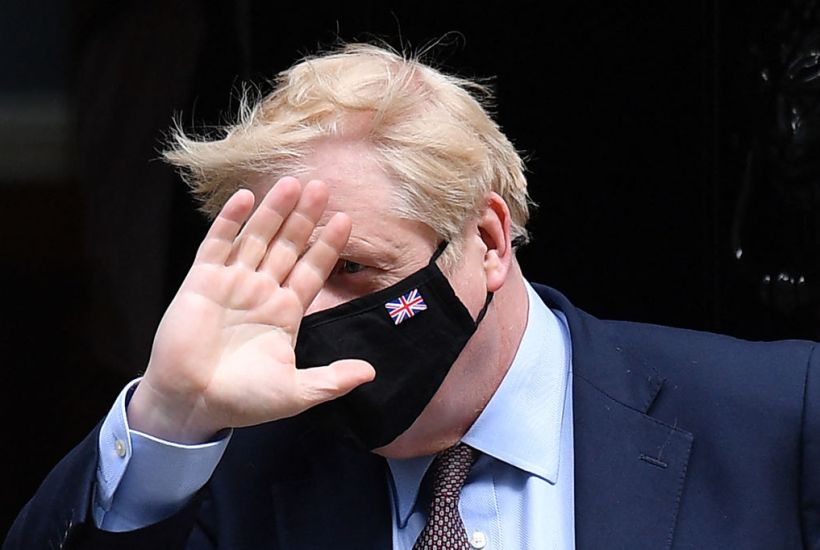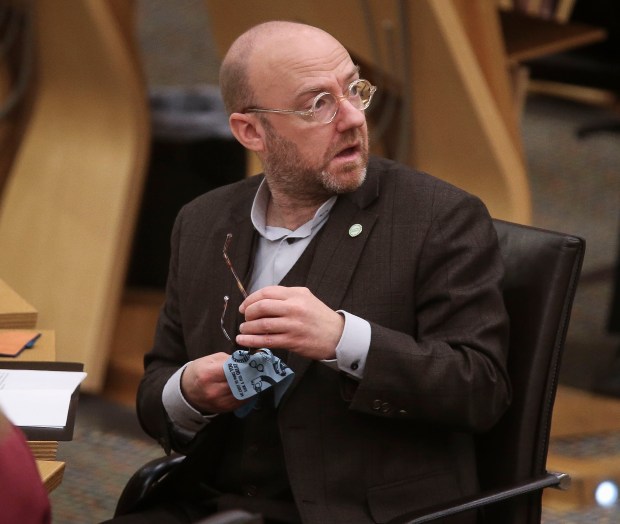The five most frustrating words a journalist can hear are: ‘This is not a story’. Over the years, I have heard that warding charm invoked by press officers governmental and party, private sector and charitable. Every time, it guaranteed I would work doubly hard to ensure the story in question made it into print. Political journalists, in particular, are thrawn by nature and cynical through experience. They begin from the assumption that you did it, everyone around you knows you did it, half of them are doing it too, and if they keep at you long enough you’ll eventually end up reading a prepared statement outside your front door one morning while your wife silently reflects that you can’t even take a brown envelope competently.
So when it’s pointed out to political hacks that none of their reporting on Boris Johnson is cutting through, they hear it as merely a taunting variation on ‘this is not a story’. It’s not, though. It’s a straightforward observation that, if the polls are anything to go by, the voters are making up their minds about the Prime Minister and his government independent of much of the media coverage of both. Journalism can’t be driven purely by popular opinion — much of what is in the public interest doesn’t interest the public — but there ought to be some reflection on the gap between what media elites fixate on and what the public cares about.
Since the 2019 election, there have been a series of scandals that were meant to demonstrate Johnson’s unfitness for office or make voters see the error of their ways in returning his government with a large majority to deliver Brexit. As a hater of Boris, I have put my own faith in many of them. There was the row over who paid for his holiday in Mustique. The brouhaha about who footed the bill for renovating the Prime Minister’s official flat. ‘Let the bodies pile high’-gate and missed-publication-deadline-gate, and, of course, Priti Patel, the Monster of Marsham Street.
The naked media fury at their failure to secure Dominic Cummings’ firing over his rule-breaking jaunt to Durham. The naked media fury at their failure to secure Matt Hancock’s firing over Cummings’ allegations. Some of these reflect poorly on the Prime Minister and his government; taken in total, they might suggest an operation that is derelict about detail or even contemptuous of the rules. However, the breathless media coverage each story garnered dropped away abruptly when it became clear they weren’t going to bring down the Prime Minister or claim another high-ranking scalp.
Journalists should scrutinise government and investigate allegations against ministers, however much their reporting might irritate political partisans or bore everyone else. You need only observe the litany of scandals and policy failures the SNP has got away with in Scotland to the see the opposite phenomenon — under-scrutiny — and the consequences it has.
There is a balance to be struck, however, and it involves weighing what is important or engrossing or titillating at Westminster and in newsrooms and on WhatsApp groups against the priorities of the public outside these settings. I know no one who cares about Boris Johnson’s flat or his holidays, but I know several who have had operations cancelled or treatment delayed as a result of the pandemic. More than four million NHS patients in England are waiting for treatment and more than two million for surgery. The number of adults reporting ‘moderate to severe depressive symptoms’ doubled in the first three months of the pandemic and has stayed there ever since. Forty-thousand fewer patients started cancer treatments in 2020 and 45 per cent of those with cancer symptoms did not contact their GP between March and August last year. These facts have been reported on but no honest-minded person could say they have received the same intensive, saturation coverage as the Prime Minister’s taste in furnishings.
Why not? After all, if political journalists are driven to hold government to account, what could be a more pressing, more important topic than the health of the nation? Did the government take the correct approach in locking down the NHS? Was the public properly informed of the trade-off between controlling Covid and allowing other serious illnesses to go unchecked?
The problem with questions like these is that they represent the wrong kind of scrutiny. They sound too close to impugning lockdown as a strategy, and our adversarial press wasn’t terribly adversarial when ministers unveiled the most sweeping restrictions on liberty during peacetime. If anything, sections of the mainstream media were demanding faster and more stringent lockdowns. They may have been right to do so but when it came to challenging ministers on the knock-on effects, the vigour seen for more trivial stories was lacking.
Critics of the media — which seems to be just about everyone these days — tend to blame political bias. It may be that you could shout ‘Brexit’ in some newsrooms and not be heard by a single person who voted for it. But there are structural and cultural faults at play that are probably more decisive. Too much political journalism is produced in London or other large metropolises and too many who do the producing come from a homogenous pool: middle class, arts and social science graduates, culturally progressive, with limited knowledge or experience of provincial or rural Britain, of running a business, of regularly attending worship. These journalists are convinced, and this is pivotal, that political journalism is a glorified gossip column: who’s up, who’s down, who’s doing who, and who’s doing who in. This style of reporting is self-reinforcing: journalists writing about politicians to be read by politicians and other journalists. Unless they are unusually interested in politics, the average member of the public gains nothing from this, except, in some cases, an even sharper sense of estrangement from the fourth estate.
A story is a story but not all stories warrant wall-to-wall coverage. And some things that seem non-stories to the hack pack affect the daily lives of millions in ways more pressing than the latest minister whose resignation is being bayed for by Twitter. Populists of left and right say political journalists and commentators are hated by the public, and maybe we are, but there is a more urgent danger than contempt: irrelevance.
Got something to add? Join the discussion and comment below.
Get 10 issues for just $10
Subscribe to The Spectator Australia today for the next 10 magazine issues, plus full online access, for just $10.




















Comments
Don't miss out
Join the conversation with other Spectator Australia readers. Subscribe to leave a comment.
SUBSCRIBEAlready a subscriber? Log in